
The Battle of Eylau, in February 1807, had been a wintry bloodbath, proving to be little more than a Pyrrhic victory at best for the French. French casualties were as high as 25,000, and when compared to the enemy’s 15,000 and their withdrawal from the field, Napoleon Bonaparte had been denied the most central tenet of his military maxims: a decisive battle. He had failed to knock the Russians out of the war by forcing them to the negotiating table, and would seek to remedy that before the end of the year.
Napoleon had one overriding objective after Eylau: the complete annihilation of General Levin August Bennigsen and his Russian army. To achieve this, he had to make the most of the winter months. Having taken up residence during this time at Finkenstein Palace just south of modern-day Susz, Poland, Napoleon set about creating a new army seemingly out of thin air to protect against potential incursion and refitting and reorganising his field forces for the coming campaign.
Looking to safeguard the heart of French territories and its holdings in Europe, Napoleon created the Army of Observation. This new army sprang to life by the stripping of French garrisons, which were backfilled with Allied troops, mass drafts from the Army of Italy and the strong-arming of Spain to provide over 18,000 troops to the new army. Even the French conscripts were ordered to French training depots a year-and-a-half early to fill its ranks. General Guillaume Brune was given the most important command, that of the 60,000-strong centre in Germany, with the emperor’s brother Jerome Bonaparte commanding the army’s right flank in Silesia and Marshal Edouard Mortier commanding the left based in Pomerania – this constituted the newly created 100,000-strong Army of Observation.
This story is from the {{IssueName}} edition of {{MagazineName}}.
Start your 7-day Magzter GOLD free trial to access thousands of curated premium stories, and 9,000+ magazines and newspapers.
Already a subscriber ? Sign In
This story is from the {{IssueName}} edition of {{MagazineName}}.
Start your 7-day Magzter GOLD free trial to access thousands of curated premium stories, and 9,000+ magazines and newspapers.
Already a subscriber? Sign In
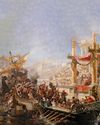
NAUMACHIA TRUTH BEHIND ROME'S GLADIATOR SEA BATTLES
In their quest for evermore novel and bloody entertainment, the Romans staged enormous naval fights on artificial lakes
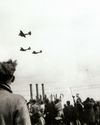
OPERATION MANNA
In late April 1945, millions of Dutch civilians were starving as Nazi retribution for the failed Operation Market Garden cut off supplies. eet as In response, Allied bombers launched a risky mission to air-drop food
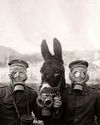
GASSING HITLER
Just a month before the end of WWI, the future Fuhrer was blinded by a British shell and invalided away from the frontline. Over a century later, has the artillery brigade that launched the fateful attack finally been identified?
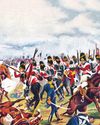
SALAMANCA
After years of largely defensive campaigning, Lieutenant General Arthur Wellesley went on the offensive against a French invasion of Andalusia

HUMBERT 'ROCKY'VERSACE
Early in the Vietnam War, a dedicated US Special Forces officer defied his merciless Viet Cong captors and inspired his fellow POWs to survive
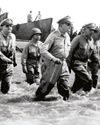
LEYTE 1944 SINKING THE RISING SUN
One of the more difficult island campaigns in WWII's Pacific Theatre saw a brutal months-long fight that exhausted Japan’s military strength

MAD DAWN
How technology transformed strategic thinking and military doctrine from the Cold War to the current day
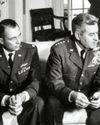
BRUSHES WITH ARMAGEDDON
Humanity came close to self-annihilation with the Cuban Missile Crisis, Broken Arrows’ and other nuclear near misses
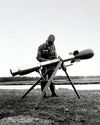
THE DEADLY RACE
How the road to peace led to an arms contest between the USA and USSR, with prototypes, proliferation and the world’s biggest bomb
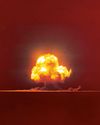
THE MANHATTAN PROJECT
Einstein, Oppenheimer and the race to beat Hitler to the bomb. How a science project in the desert helped win a war